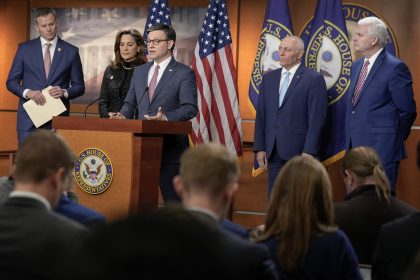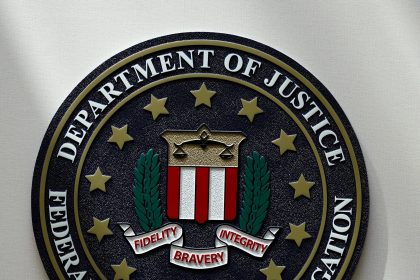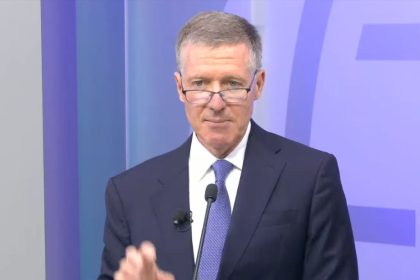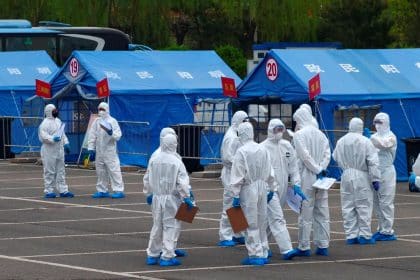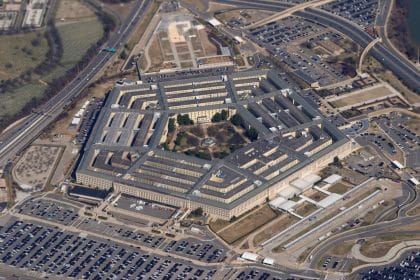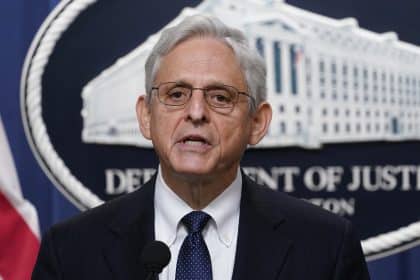Intelligence Officers Warn of Dangers as Russian Invasion of Ukraine Gets Uglier
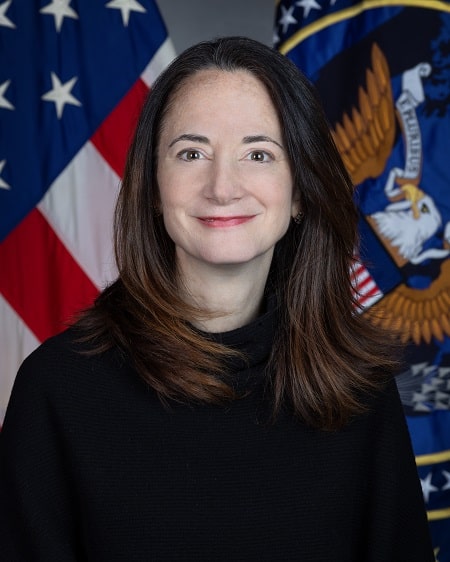
WASHINGTON — The world has become a more dangerous place in the past three weeks since the Russian invasion of Ukraine, U.S. intelligence officials told a Senate panel Thursday.
In addition to Russia’s war with Ukraine threatening to spread much further, China’s military and economic prowess is pushing up against U.S. interests, and rogue nations like Iran and North Korea remain wild cards for international security as they develop nuclear weapons, they said.
An immediate concern during the Senate Intelligence Committee hearing was Russian allegations that Ukraine is developing chemical, nuclear and biological weapons with U.S. assistance.
“We do not assess that Ukraine is pursuing either biological weapons or nuclear weapons,” said Avril Haines, director of national intelligence.
Instead, she said the Russian allegations appear to be another false flag accusation, perhaps indicating they will use the same kind of weapons against the Ukrainians in what they will say is an act of preemption.
A false flag refers to actions committed with the intent of disguising the source of responsibility and pinning blame on another party. The Biden administration has accused the Russians of multiple false flag allegations against Ukraine in recent weeks to justify their invasion that started late last month.
The Ukrainian government operates a half dozen labs to develop defenses against biological weapons and to promote public health, Haines said. None of them represent a military threat.
Haines and other intelligence leaders testified to the Senate for their annual review of worldwide threats.
This year, there are many of them, mostly from Russia and China but also from global warming and further risks of pandemic, they said.
Haines said the war between Russia and Ukraine is turning into a worse scenario than anyone expected. Initial intelligence assessments predicted a quick victory by the Russians against the mismatched Ukrainians.
“They are facing significantly more resistance than they expected from heroic Ukrainians,” Haines said.
Even if the Russians win the war, they would be unlikely to succeed in fulfilling Russian President Vladimir Putin’s goal of installing a new government friendly to his interests, she said.
Instead, they would face “what we expect to be a persistent and significant insurgency,” she said.
Haines’ warning about Russians potentially using chemical or biological weapons was repeated Thursday by White House Press Secretary Jen Psaki. She told reporters the Russians “not only have the capacity, they have a history of using chemical and biological weapons.”
Sen. Mark Warner, D-Va., described Russia as “a pariah state” that is falling under broad international condemnation.
“It’s a pretty remarkable situation whenever even Switzerland gets out of its neutral position,” said Warner, chairman of the Intelligence Committee.
Russia’s brutality in bombing civilian targets also is raising concerns among its staunchest ally in China, according to CIA Director William Burns.
Despite a strong economic partnership, “the Chinese leadership, President Xi in particular, is unsettled by what he’s seeing,” Burns said.
Xi is showing concern about “the reputational damage that China suffers by associating with the ugliness of Russia’s aggression with Ukraine,” Burns said.
The reputational damage could extend to Russia and China’s united efforts to drive a wedge between the U.S. and its European allies, he said.
It also could jeopardize China’s ultimate goal of gaining control of Taiwan, according to the intelligence officers. Xi had hoped for Russian support for his global economic and military ambitions, which included annexing Taiwan.
Sen. Marco Rubio, R-Fla., referred to Chinese militarism when he said, “In the Far East, we find the most audacious and consequential claim of all, an assertive China which believes all roads must one day lead to Beijing, and that their smaller neighbors must accept their place in the world as tributary states.”
Many of the concerns raised during the hearing were addressed in the 2022 Annual Threat Assessment of the U.S. Intelligence Community released at the Senate hearing.
It starts by saying, “In the coming year, the U.S. and its allies will face an increasingly complex and interconnected global security environment marked by the growing specter of great power competition and conflict, while collective, transnational threats to all nations and actors compete for our attention and finite resources. These challenges will play out amidst the continued global disruption resulting from the COVID-19 pandemic, contention over global efforts to deal with a changing climate, increasingly powerful non-state actors and rapidly evolving technology.”
Tom can be reached at [email protected]


















